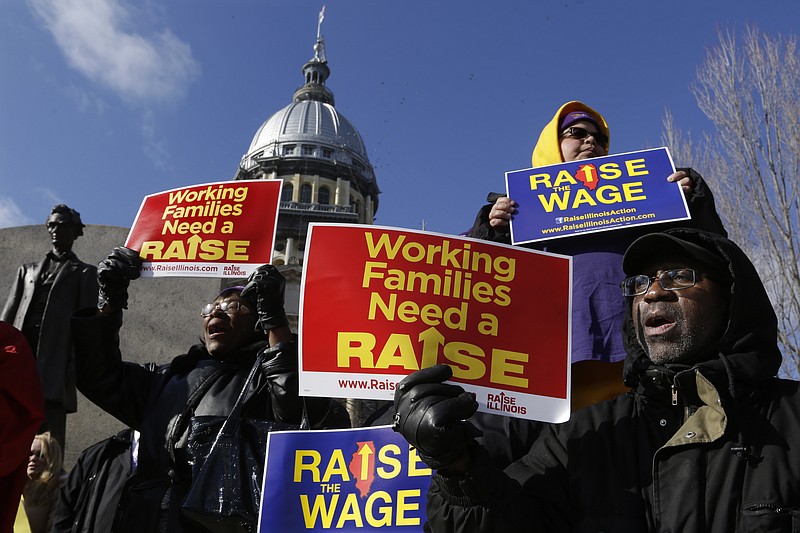BIRMINGHAM, Ala. -- The Birmingham City Council passed an ordinance Tuesday to set a minimum hourly wage in the city and increase it to $10.10-an-hour by July 2017.
Council President Johnathan Austin recommended the proposed ordinance, which calls for wages to increase to $8.50 in July 2016 and $10.10 in July 2017. Alabama has no minimum wage and the federal minimum of $7.25 applies in the state.
Several councilmembers said the move is in the interest of poor Birmingham residents as commercial and residential development increases in the city.
Roughly 30 percent of Birmingham residents lived below the poverty level between 2009 and 2013, and residents' per-capita income was about $19,650 during the same period, according to U.S. Census Bureau data.
Councilwoman Valerie Abbott abstained from voting on the issue, saying she wanted to hear from legal and financial experts before making a decision. The city's legal department is expected to weigh in next week.
"I'm certainly in favor of people being paid a fair wage, but I am concerned about if anyone in the administration is considering what could happen to Birmingham businesses," Abbott said. She later added that she's also concerned the city could lose potential employers to neighboring areas.
"I don't think we wait for anything, quite frankly. If you don't do it now, when do you do it?" councilmember Steven Hoyt asked. "There's no need to delay, we need to move on, go quickly and do what needs to be done by our citizens."
Alabama Department of Labor spokeswoman Tara Hutchinson said Birmingham may be the first city in the state to establish a minimum wage. That garnered praise from Rep. Darrio Melton, D-Selma, who said he plans to continue pushing to pass legislation establishing a state hourly minimum wage of $10.10.
Stephanie Yates, director of the University of Alabama-Birmingham Institute for Financial Literacy, said more buying power among low wage workers could boost the local economy, but could also have negative impacts aside from higher wage costs being passed along to consumers.
"Any time you have this kind of sweeping change in the minimum wage, you have the potential for some workers to see increased real income, and some workers to lose their jobs," Yates said, adding that she expects positive outcomes for low-wage workers to outweigh potential job losses.
The Birmingham proposal was initially presented to the council about two months ago and was discussed again about a month afterward, Austin said in an email. Austin said business owners he has spoken with have been generally supportive of the idea.
"Some of them are saying we may pass on the costs to the consumer or whatever, but I think overall it will have a positive effect on our economy," he said. Austin later said he's not concerned with the prospect of current and potential employers leaving the city.
Birmingham Business Alliance spokeswoman Lauren Cooper said in an email that the group hasn't taken a position on the issue and the BBA's public policy and executive committee hadn't fully reviewed the ordinance as of Tuesday evening.
Austin stressed that council is working to be progressive and likely would have faced criticism regardless of how they voted on the issue. Austin added that city leaders will continue to "push the envelope" and do things that may not be popular to plan for Birmingham's future.
The ordinance to set a minimum wage in Birmingham comes weeks after council, whose positions are part time, voted 8-1 to increase base salary for council members from $15,000 to $50,000 in 2017.
Some members said the group does full-time work on part-time pay.
